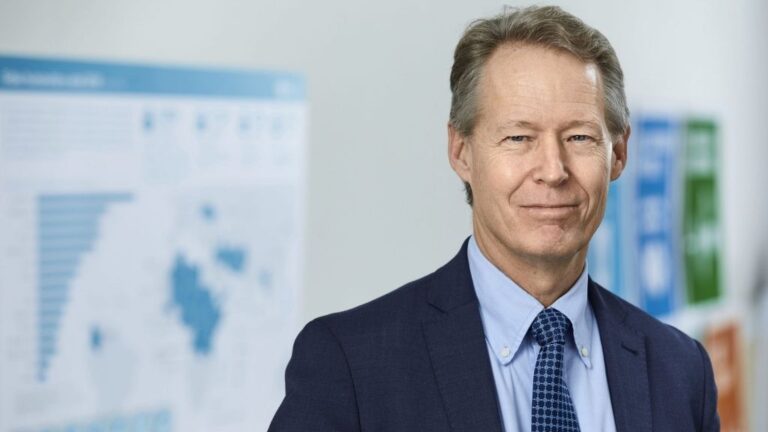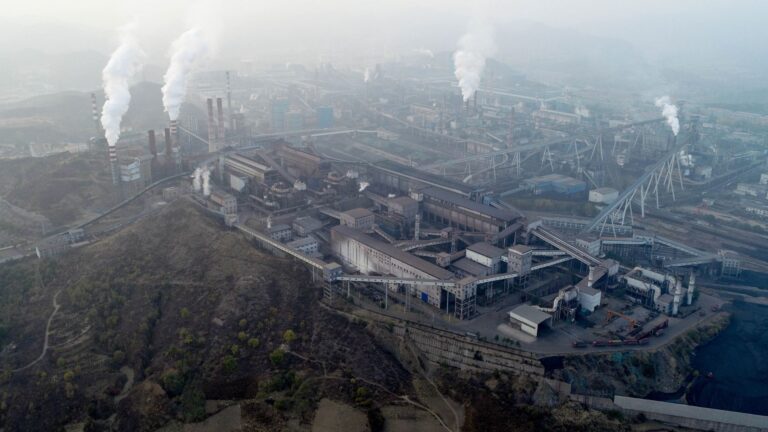Of: Alan Atkisson
Covid-19 has turned difficult progress into setbacks. The latest figures from the World Bank give a gloomy picture in areas such as global poverty, hunger, health and education. But in the midst of a pandemic, we are also experiencing a dramatic acceleration of digitalisation, greater opportunities for equal inclusion and the development of new investment instruments to lift people out of poverty. We must look at the big picture, think long-term and continue to look for more effective levers for change, says Alan AtKisson, department manager at Sida.
February 15, 2021, Debate
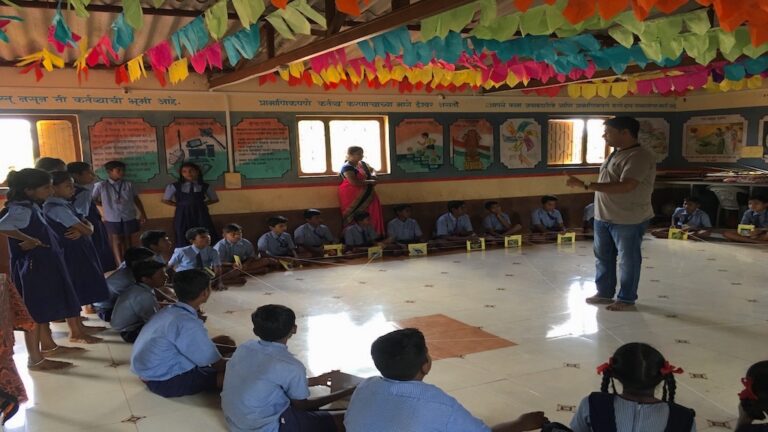
Kunal Anerao stands in a circle of students from Parsharam Wadi School, a school outside the town of Devrukh in the Indian countryside. Photo: Frida Viklund Rundgren
Of: Frida Viklund Rundgren
Covid-19 poses new challenges for the Indian environmental organization Srushtidnyan, whose school project has been allowed to continue online. Environmental work with farmers has stopped, but the organization hopes for an increased interest in organic farming methods when migrant workers return to their home villages to invest in agriculture. Positive changes can also be seen when the government has opened up for increased cooperation with civil society organizations in vulnerable areas.
February 11, 2021, Interview

Johanna Wolf, non-profit active in FUF Stockholm
Of: Johanna Wolff and Max Ericson
The world is getting smaller with digitalisation. At the same time, we also see how complex the world is and that the challenges can be difficult to solve when we are not working together or towards the same goal. But why is it important that we have knowledge of the world and all the challenges we face? Read more about what our two non-profit active members from FUF think about this. They talk about the importance of finding their glow and getting a platform to express themselves.
February 8, 2021, Chronicle
Of: Josefin Pasanen
The new year comes with promises of large-scale Covid vaccination and a glimmer of hope that things can soon return to "normal" again. But there are many indications that it is precisely our "normal" way of life that has triggered the pandemic and the global socio-economic crisis that has come in its wake. The latest UN report on human development (HDR 2020) shows that the Covid-19 pandemic risks becoming a warning of what is to come, if humanity does not change course and work to restore balance on the planet.
January 29, 2021, Debate

Photo: Gerry Machen / Flickr
Climate change threatens the world as we know it and the need for climate action is getting more pressing every day. The impacts of the Covid-19 pandemic on oil prices opens the door to a green recovery without fossil fuel subsidies.
December 22, 2020, Paper, English, Magazine, Report
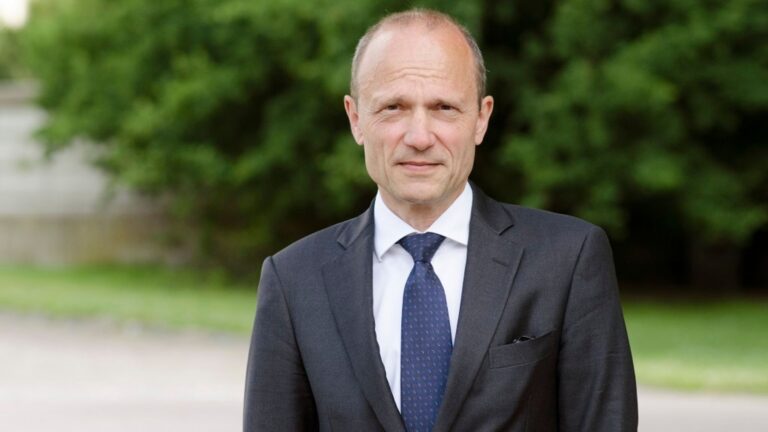
Morten Kjaerum, Director of the Raoul Wallenberg Institute of Human Rights (“Photo: FUF Lund / RWI Lund”)
Of: Chiara D'Agni and Yi-Chia Chen
Human rights cities, as Lund, is a new phenomenon and according to a recent report by the Raoul Wallenberg Institute of Human Rights and Humanitarian Law (RWI) they can better contribute to the implementation of Sustainable Development Goals (SDGs). FUF Magazine has interviewed the Director of the RWI, Morten Kjaerum, to talk about SDGs and human rights cities.
December 21, 2020, Paper, English, Interview, Magazine
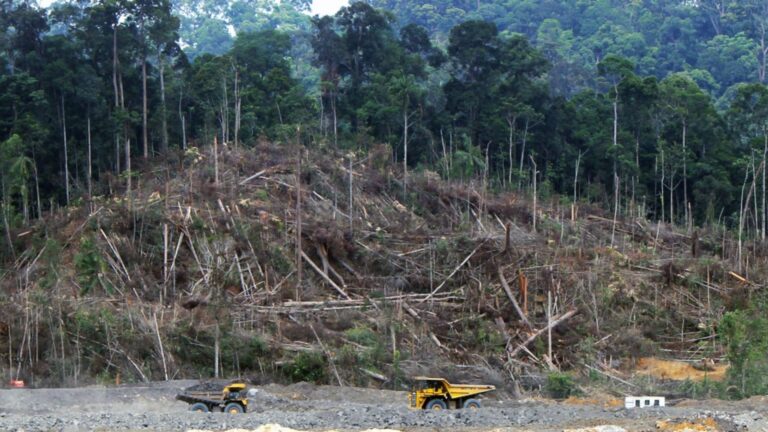
Economic growth contributes to climate change through large scale resource extraction. Photo: Andrew Taylor / Flickr
Of: Alice Castensson and Julian Dannefjord
The United Nations envisions both increased economic growth and effective climate action by the end of this decade. The combination of these is not consistent in the current state of the world. To effectively combat the threat of climate change, we need a shift in the status quo and a different economic structure.
December 20, 2020, Chronicle, English, Chronicle, Magazine
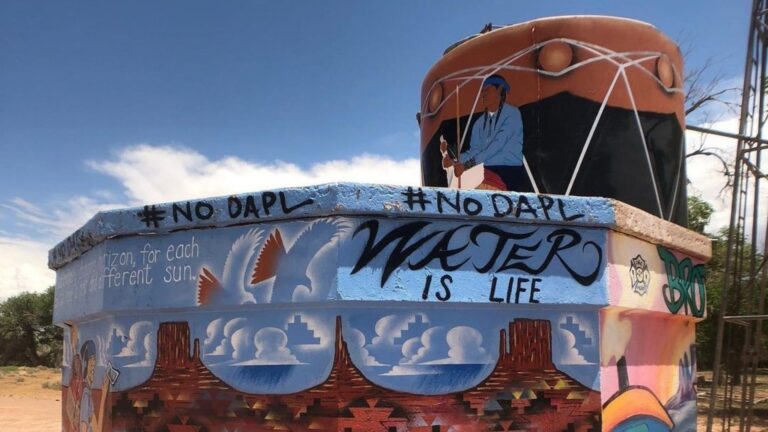
Illustrating the Importance of Water in the Navajo Nation Photo: Dig Deep
Of: Alice Antoniou and Julia Mühlhauser
Covid-19 has increased awareness of the importance of sanitation globally; however, many face challenges meeting hygiene needs due to difficulties accessing clean water. Native Americans in the United States are particularly hard hit by this issue.
December 19, 2020, English, Magazine, News article, News

The Sustainable Development Goals were adopted by 193 countries in 2015, but are not on track to be achieved by the 2030 target. (Photo: United Nations Photo / Flickr.)
Of: Clara Bengtsson and True Honkaniemi
The world is not on track to achieve the Sustainable Development Goals (SDGs) and accomplish the 2030 agenda for sustainable development. The 17 goals claiming to be transformational are contradictory and insufficient. Poverty has not decreased, inequality is deepening and emissions keep rising. If the SDGs wish to be more than business as usual, structural change is needed.
December 18, 2020, English, Magazine, Opinion
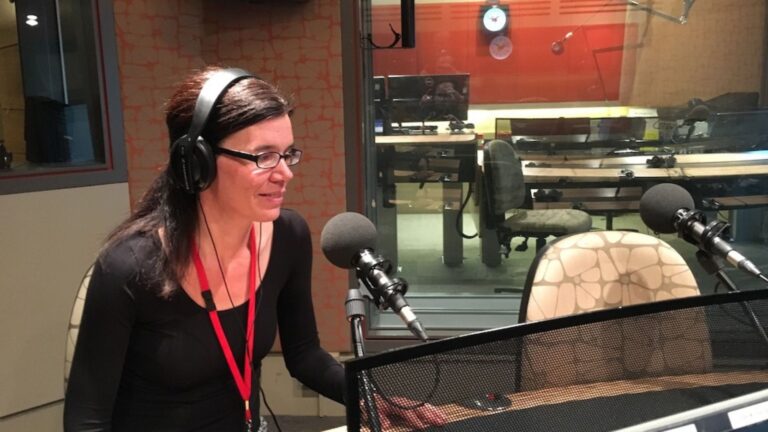
Christine Wamsler, Professor at LUCSUS (Lund University Center for Sustainability Studies in Sweden). Photo: Christine Wamsler
Of: Emily Elderfield and Larissa Lachmann
Professor Christine Wamsler's research includes the role of mindset in tackling sustainability issues, and how individuals and cities can better respond to challenges of the climate crisis. We spoke to her about scales of sustainability, questioned whether the SDGs are integrated enough, and explored the role of education and communication strategies on sustainability.
December 17, 2020, Paper, English, Interview, Magazine

